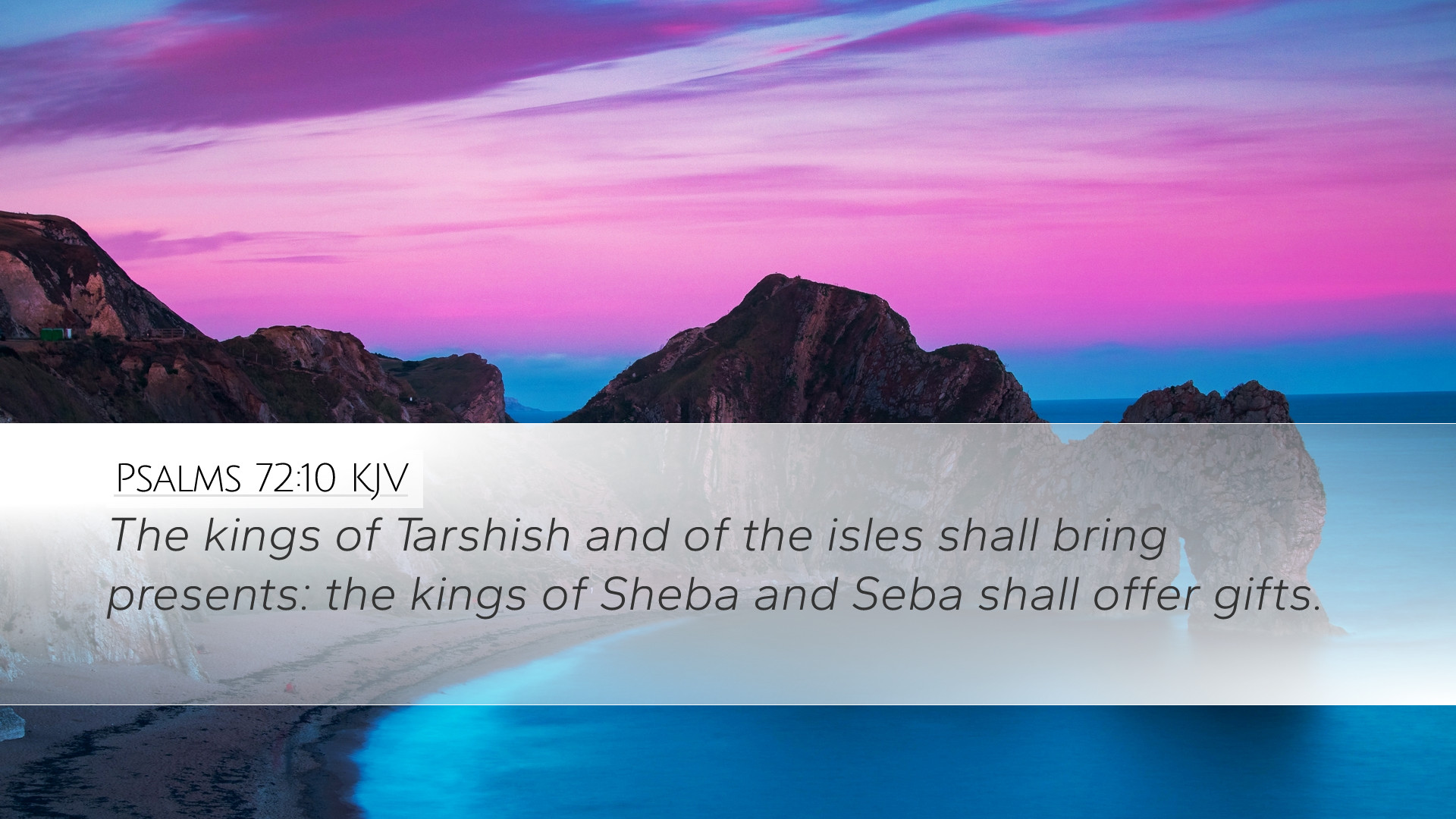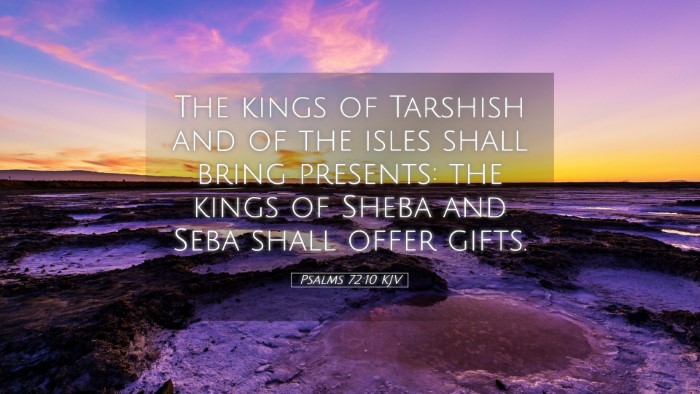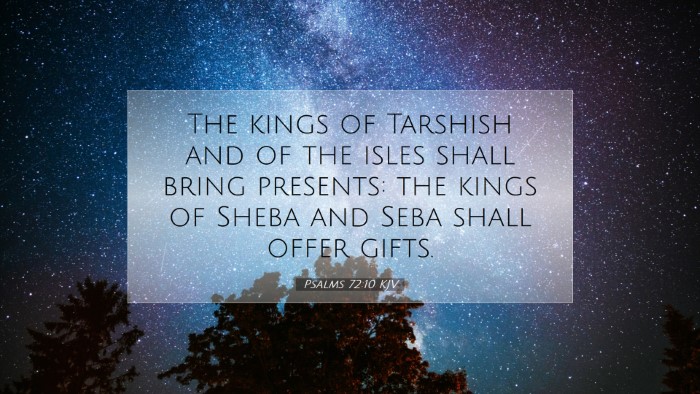Psalms 72:10 - Commentary
Verse: "The kings of Tarshish and of the isles shall bring presents: the kings of Sheba and Seba shall offer gifts."
Introduction
This verse presents a prophetic picture of the future reign of the Messiah, illustrating a time when not only Israel, but all nations will acknowledge His sovereignty. The engagement of foreign kings in tribute and gifts symbolizes a profound recognition of the King’s authority and glory.
Context of Psalm 72
Psalms 72 is a royal psalm attributed to Solomon, though traditionally it is considered a psalm of David asking for divine guidance for the king. Its themes reflect the hope for an ideal monarch who is just and righteous, ensuring peace and prosperity for his people. This context is crucial, as it shapes our understanding of verse 10.
Insights from Matthew Henry
Universal Recognition: Henry emphasizes that the mention of "kings" in this verse indicates how the Messiah would reign not just over Israel, but become a figure of power recognized by all nations. Tarshish and the isles (likely referring to distant lands and trading nations) are seen as symbols of wealth and commercial prowess. This signifies that the glory of the Lord would spread to the ends of the earth.
Tribute and Gifts: The act of bringing presents and offering gifts reflects the cultures' acknowledgment of authority. Just as the Magi brought gifts to the Christ child in Matthew 2, here we see an foreshadowing of various nations coming to honor the Messiah.
Albert Barnes' Perspective
Barnes expounds on the geographical references in the verse. He notes:
- Tarshish: Generally believed to be a location far in the west, possibly Spain, a center of trading. Its kings signify the wealth of nations acknowledging the sovereignty of God.
- Isles: Refers to various islands or coastal nations that, in ancient times, were often centers of trade and commerce.
- Sheba and Seba: These were regions associated with riches, the former famous for its gold and spices, suggesting that even the wealthiest lands would yield tribute to God's anointed one.
Barnes concludes that this shipment of gifts is a clear indication of the expansive influence of the Messiah’s reign and His power to subdue nations.
Analysis by Adam Clarke
Clarke offers a detailed analysis of the specific nations mentioned in the verse:
- Kings of Tarshish: He identifies Tarshish as a trading power, known for its ships and wealth. Gifts from such nations show the global reach of God's kingdom.
- Kings of Sheba: Historically known for their rich resources, their offering implies a coming together of the most prosperous realms to honor the Lord.
- Isles and remote places: Clarke suggests that these references highlight God's universal sovereignty and His invitation for all nations to join in worship.
Clarke eloquently remarks that the offerings and presents signify humility before the divine, a recognition of the ecological and economic reality of the kingdom of God as one that empowers and enriches.
Theological Implications
This verse not only serves as a prophecy regarding the coming of Christ but underscores several core theological themes:
- Inclusion of Gentiles: The tribute from non-Israelite nations signifies the inclusive nature of God’s promise, extending beyond ethnic and geographical boundaries.
- Wealth in the Kingdom: The delivering of gifts suggests that in God’s kingdom, earthly wealth and resources are seen as instruments for worship and divine acknowledgment.
- Divine Kingship: The kings coming to offer presents embodies the submission to God’s authority, which is paramount in the advancement of His kingdom.
Application for Today
Pastors, students, and theologians can reflect on this verse as a call to understand the universal scope of the Gospel in our ministry:
- Global Outreach: It encourages the church to engage with diverse cultures and nations, recognizing that God commands authority over all.
- Stewardship of Wealth: An understanding of wealth as a means to participate in God’s mission can lead to responsible handling of resources, directing them towards God’s work.
- Humility Before God: Just as foreign kings humbled themselves to present gifts, we are called to approach God with humility, offering our lives and resources as gifts.
Conclusion
Psalms 72:10 serves as a beautiful reminder of the expansive nature of God's kingdom. The reverent tribute brought by kings from afar reveals the omnipotence of Christ the King and the calling for all nations to humble themselves in recognition of His authority. As we continue in our study and application of this text, may we be inspired to engage in global mission and stewardship, celebrating our role in God’s unfolding narrative.


